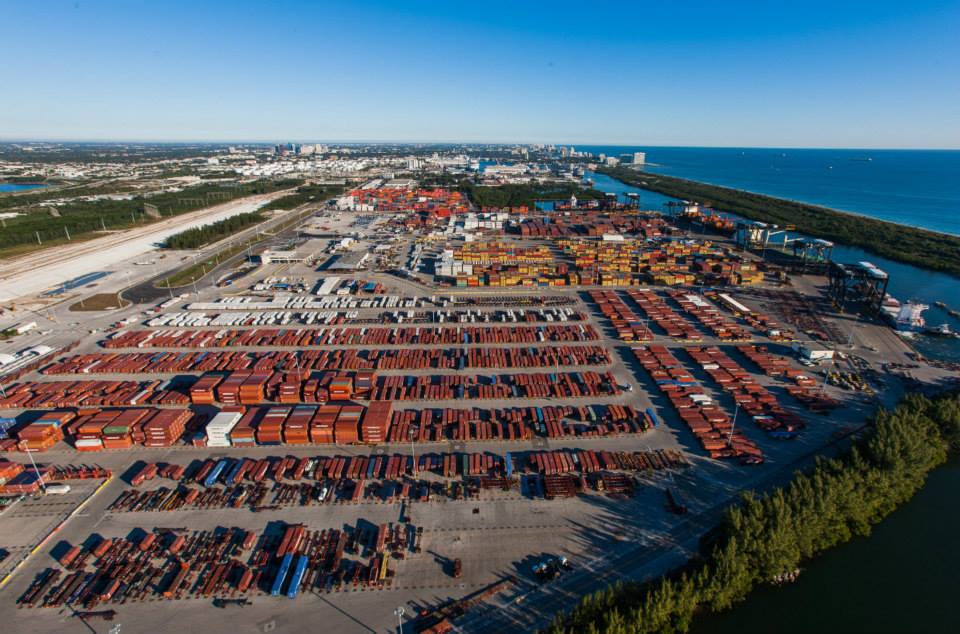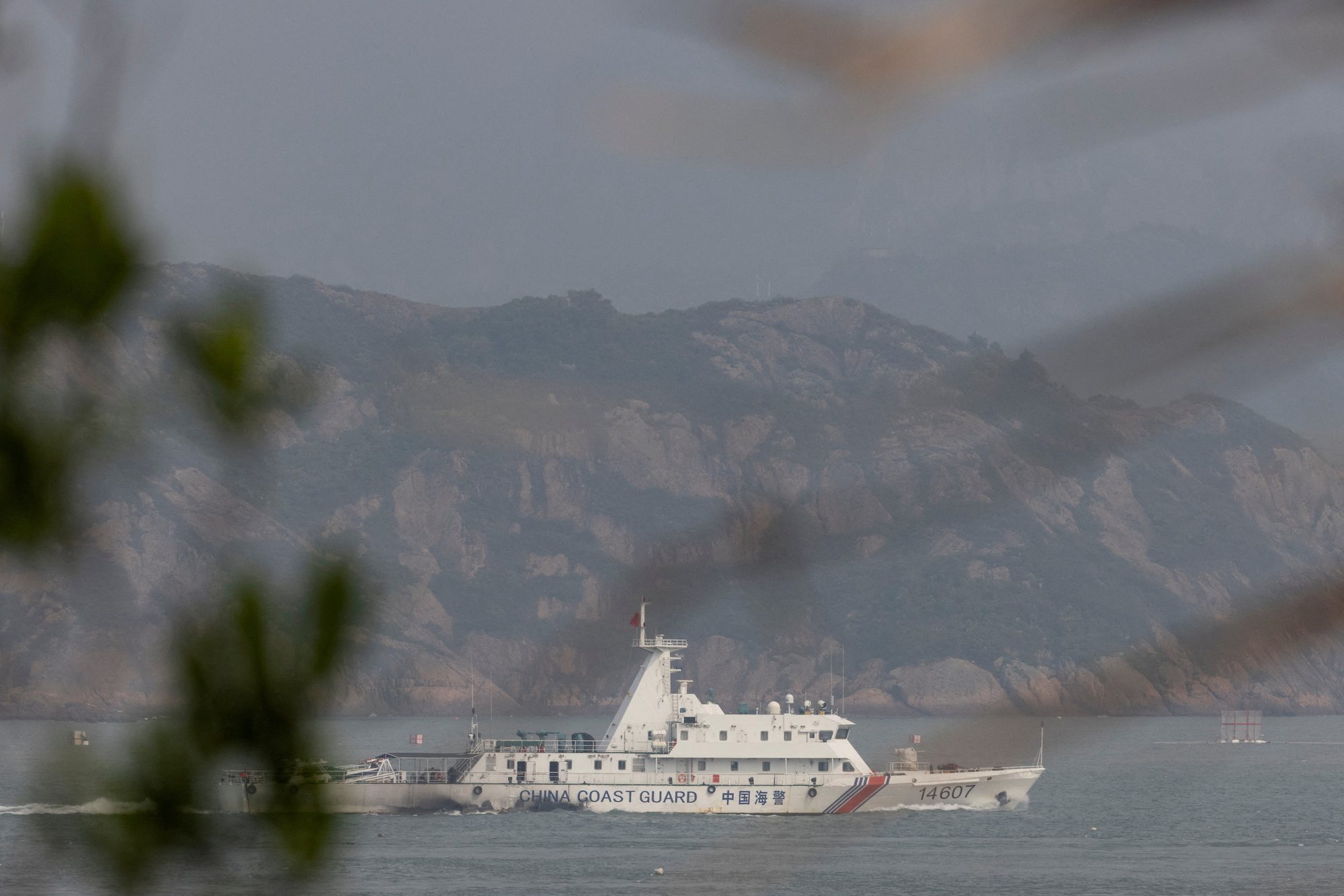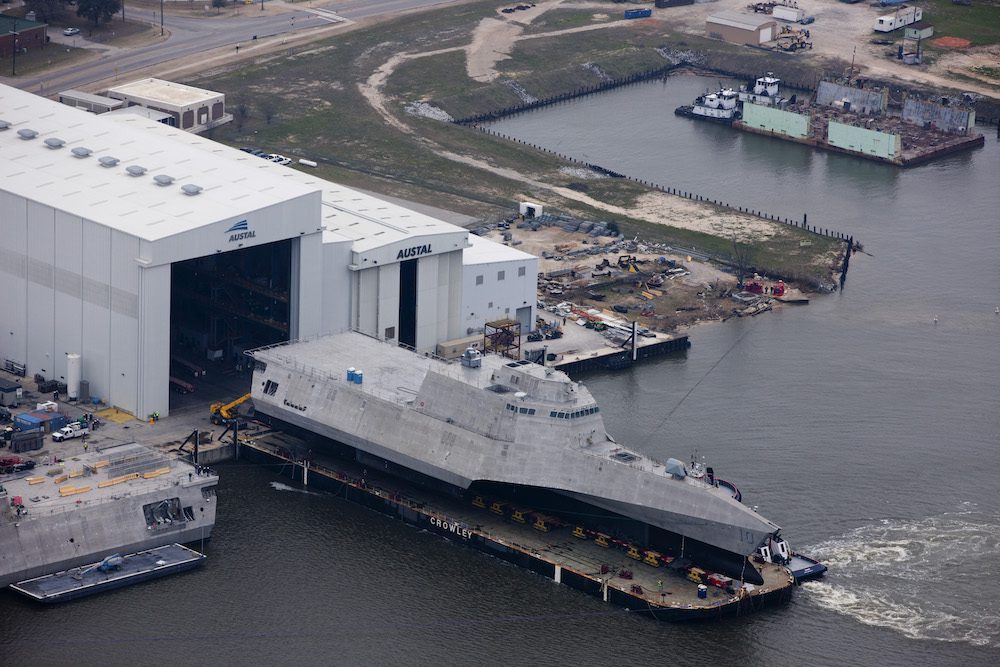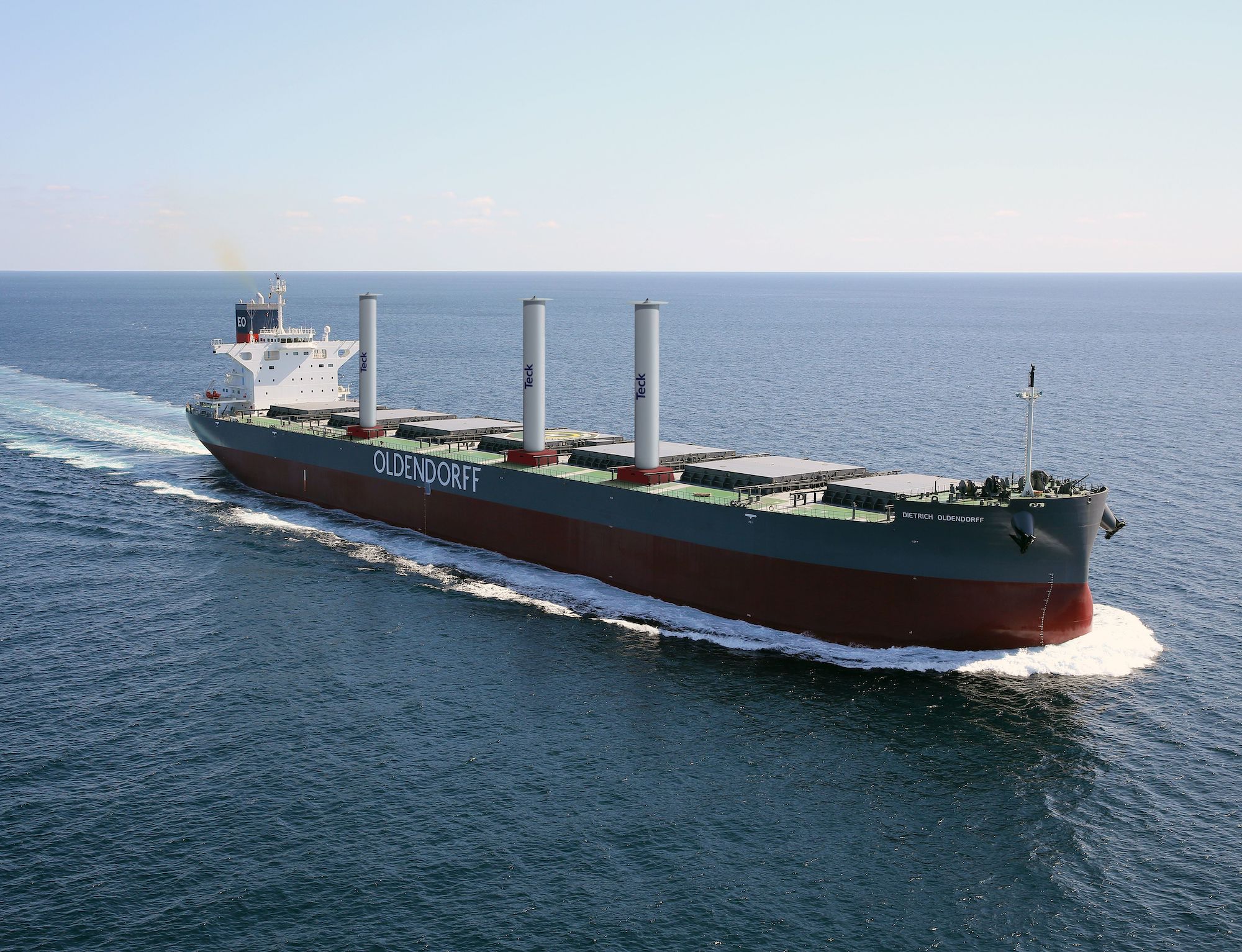South Port at Port Everglades. Photo courtesy Port Everglades
By Derek Wallbank and James Rowley
May 9 (Bloomberg) — U.S. House and Senate negotiators reached agreement on a bill that would authorize deepening several U.S. ports ahead of the expansion of the Panama Canal and the bigger ships that will use it.
The legislation — the first such measure in seven years — will include provisions that would let ports pay the costs of deepening harbors up front and then seek reimbursement from the government once the project is authorized by lawmakers. That could help facilities such as Port Everglades in South Florida reduce construction time by years.
“That’s a big part of this bill,” House Transportation Committee Chairman Bill Shuster, a Pennsylvania Republican, said in an interview. “They’ve got money ready to go.”
In-Depth: Ports Seek Hedge Against Congress Gridlock in Dredging Bill
The Water Resources Reform and Development Act, H.R. 3080, is seen as one of the few examples of bipartisan action in a polarized Congress that’s on pace to become the least productive in history in terms of bills passed.
The full legislation probably won’t be released until next week, Shuster and his Senate Democratic counterpart Barbara Boxer of California said in a joint statement.
Senate Measure
The Senate-passed version would have authorized money to take action in response to rising sea levels or increased ocean temperatures resulting from climate change. House Republicans who have resisted new spending linked to climate change rejected that provision.
Even so, Senate Majority Leader Harry Reid, a Nevada Democrat, said the agreement contains language on effects on sea levels and ocean temperatures. The final sticking point in the talks was over a proposed National Endowment for Oceans that Shuster said was dropped.
The largest navigation project included in both the House and Senate-passed measures would deepen the Sabine-Neches Waterway, which connects the oil-refining hub of Beaumont and Port Arthur, Texas, with the Gulf of Mexico.
The Port Arthur area is home to the southern end of the Keystone XL pipeline. Deepening the port will reduce shipping costs for oil and natural gas processed there by Exxon Mobil Corp., Total SA and Cheniere Energy Inc.
That deepening project was included in the final bill, Shuster said, along with more than two dozen others.
Flood Prevention
Also authorized, Shuster said, are storm and flood- prevention projects. They include the Morganza to the Gulf levee system sought by lawmakers in storm-battered Louisiana and a diversion channel for the Red River of the North that would reduce flood risks in Fargo, North Dakota.
For Port Everglades, the measure could allow spending up to $181 million to deepen and widen the shipping channel and harbor, with the potential for reimbursement. The change will increase cruise and freight capacity at the port, which takes in Mediterranean Shipping Co. freighters so big that they can’t pass Royal Caribbean Cruises Ltd. ships in part of the port.
“We’ve had an unreliable process” lately with the water bill, which used to come up every two years, said Representative Lois Frankel, a Florida Democrat whose district includes part of Port Everglades. While there’s no guarantee the port, a self- supporting division of Broward County, would get the money back, “they at least want to have a fighting chance at reimbursement,” Frankel said.
The final measure will be released next week, negotiators said in a joint statement. The House could consider the bill as soon as the week of May 19.
Copyright 2014 Bloomberg.
Unlock Exclusive Insights Today!
Join the gCaptain Club for curated content, insider opinions, and vibrant community discussions.

 Join The Club
Join The Club













